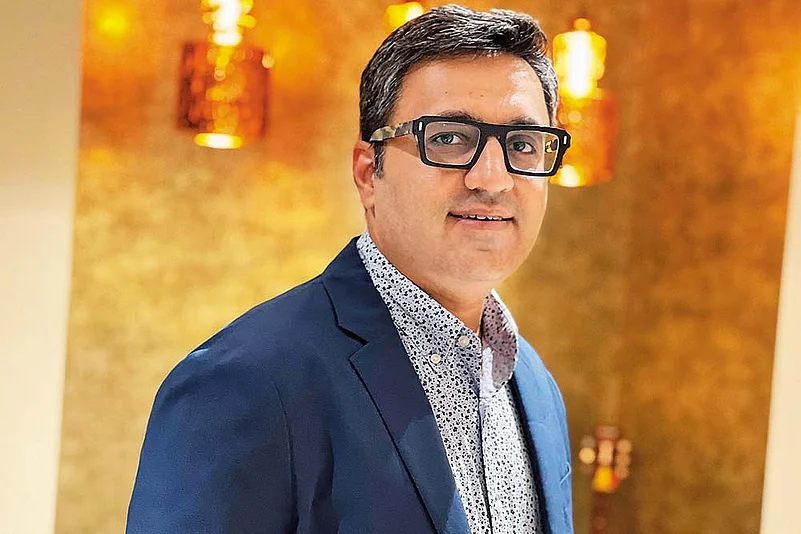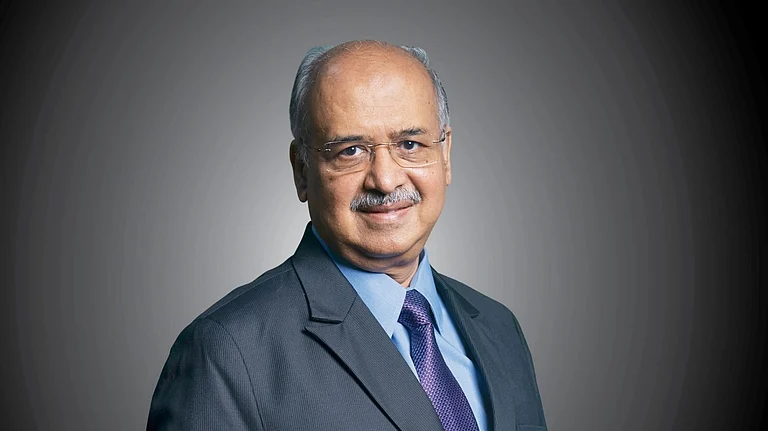Here’s a riddle for you. What is common between a video game first developed by Electronic Arts in 1994, its Hollywood adaptation in 2014 and the Indian start-up BharatPe? The answer: need for speed.
But between people and pace, what does a founder choose?
For Ashneer Grover, founder of BharatPe, it was simple. The pace of growth is “non-negotiable”, he says, a day after the company announced that it had entered the coveted unicorn club with a valuation at $2.85 billion.
In the past three years – since inception – the start-up has been growing at a breakneck pace. But, could Grover have managed the pace, and also taken his people along?

Would he rewind and change some of the things that he did? “Nothing, absolutely nothing,” he says. It’s rare to hear that from a start-up owner, but Grover is different. “If your dhandha (business) is running so fast, taking market share rapidly… you start thinking aap hi bhagwaan ho (you are the God) and whatever you touch will turn to gold. But it doesn’t play out like that,” Grover adds.
Grover often comes across as too aggressive to be emotional. But he is not heartless, or at least during the interview, his sentiments vacillated, like a ping-pong ball. Sometimes there’s a touch of regret in his voice. “In hindsight, we lost a number of good people… but they left because our pace differed. Phir bhi, kabhi kabhi bura lagta hai (sometimes I feel bad),” he says.
That was the moment. Grover seemed emotionally vulnerable. The state would last for less than half a minute. The writer quickly fired the next question: anyone he regrets not having around?
Grover looked at his palm. There was a moment of silence. “I just have one regret … that I didn’t have patience for certain people. But when you’re building something, not everything is going to go your way,” a momentarily pensive Grover says.
That is not something BharatPe could have afforded. “We could have dragged them and become slow. We didn’t want to do that. We were clinical that if you can match the pace with us, stay. Otherwise aap apne raaste ham apne raaste (it is best to go our separate ways).”
What else could he have done differently? “I should’ve given more ESOPs to some of the people who joined early on.” He would like his employees to have a sense of ownership – after all, that’s why he left Grofers.
We will come to the Grofers story later.
Back to Grover’s aggression. “We’ve been very aggressive, and we’ve been very aggressive with people,” he says with a straight face. BharatPe’s growth has been enviable except for the reputation the company has earned, of a hard-nosed employer.
Since the beginning of 2020, at least half a dozen executives have left the firm, including the head of human resources, head of payroll, chief of staff and vice president of product, among others. There have been reports of ex-employees blaming the work culture and concentration of power in decision-making.

The Boy From Malviya Nagar
Grover has a reason for his aggression. “If you’re trying to make a $3 billion company in three years, you’ll have to run at a certain pace. You don’t have time to give,” he says. In many ways, Grover is a typical South Delhi boy – brash and unapologetic. He was born and brought up in South Delhi’s Malviya Nagar, where he eventually also set up BharatPe’s first office. His father was a chartered accountant who became the reason why that career path became a complete no-no for Grover.
“I was very clear that I could not work with my dad. I love him and there’s a lot of respect but main unke saath kaam nahi kar sakta (I cannot work with him),” he tells Outlook Business.
Instead, he pursued engineering and then MBA. Having been a bright student, Grover first made it to IIT Delhi and then IIM Ahmedabad. Interestingly, he was a part of the 2000-2005 batch of IIT-D, same as Flipkart’s Sachin and Binny Bansal, Grofers’ Albinder Dhindsa and Zomato’s Deepinder Goyal.
In fact, if you follow Grover’s journey, you will see how he was destined to become a startupreneur. Via campus placement at IIM-A, he got into Kotak Investment Banking, and he stayed put for seven years. The company of future start-up founders followed him there, too. His boss at Kotak was Falguni Nayar, who now runs beauty retailer Nykaa, and is India’s first woman unicorn founder.
He then joined American Express where he had to spot investment opportunities in payment start-ups in India, and in Grovers’ own words, “I got to learn payments inside out and ended up meeting founders of over a hundred start-ups.”
Fight Over ESOPs
Dhindsa (of Grofers) remembered Grover and stayed in touch after college. In 2014, when he was starting the grocery delivery business, he dialled him. Soon, Grover found himself in the thick of things at Grofers.
“When I joined, we were only in Gurgaon. On a good day, we used to do 30 orders, but by the time I left in mid-2017, we were doing about 30,000 orders per day across 30 cities in India.”
However, Grover had realised that the grocery delivery business was going to be tough because the margins were low. But what drove Grover’s exit from the company was his disappointment over not getting the ESOPs that were promised to him.
For the family, the phase was a low point. Madhuri, Grover’s wife, and the first director of BharatPe, tells the writer, “Everyone thought that Grofers was the last thing for him and our journey with Grofers would go a long way. But when Grover decided to move on, we supported him.”
But would he have stayed longer if he got the desired ESOPs? Certainly, he responds. But, the keeda (the itch) of starting something of his own had already begun gnawing at him.

From QR Codes To Banking
“That time, Grover felt that if his batchmates can start something of their own, so can he,” Madhuri adds.
Around the time Grover wanted to start his own venture, he met Shashvat Nakrani, a 22-year-old yet to finish his third year of college. He and his colleagues had figured out a digital payment model which would place merchants at the centre of the UPI model. Grover felt that Shashvat would be the right fit to provide youthful and technological expertise to that start-up, while he would take care of the investors.
Thus, BharatPe was born. It was on August 16, 2018 that the team put the first QR in a shop at Nehru Place, in Delhi, he recalls. They were taking a huge risk. Not only were they entering a space where bigger competitors existed, they were also doing something drastic. They were not going to charge merchants anything for setting up the QRs or the payments which would take place via the product. Merchant discount rate or MDR refers to a charge paid by merchants to banks and payment service providers for every transaction. BharatPe decided to keep it at zero, at a time when bigger rivals such as Paytm were charging 2%.
Their idea was to get more merchants on board and then sell them big-ticket products such as financing. “We would give QR to merchants, figure out the value of their transactions, and on that basis give loans to them,” says Grover. In April 2019, they entered the lending business, which became its main source of revenue; and, in 2020, they began selling their own card machine called BharatSwipe.
Madhuri says that they gave investors 80x returns in two years. BharatPe investors from the angel round have booked 200x growth.
But perhaps BharatPe’s most stunning victory has been getting a banking approval from the Reserve Bank of India (RBI), a rare feat that has eluded other fintech start-ups in the country. In June this year, BharatPe, along with Mumbai-based Centrum Group, received an in-principle approval from the RBI to take over troubled cooperative lender Punjab and Maharashtra Co-operative (PMC) Bank, and re-launch it as a small finance bank. Grover says the move is aligned with BharatPe’s vision of being the first digital bank in the country.
The Big Debate On Nepotism
A lot of people question Madhuri taking up an operational role at BharatPe. Grover does not take kindly to this criticism. He insists that it is about having the right person for the right job.
This censure about nepotism does not faze Madhuri, either. “There’s no rule written anywhere that your spouse cannot work in your company,” she says. “So if people can question me then they should first question Nita Ambani’s role at Reliance.”
She points out that she had been running her own company before joining BharatPe, and has played a big role in cost control.
Despite their spirited defence, some changes are being made at BharatPe. For instance, the company recently elevated Suhail Sameer as the chief executive officer. In his new role, Sameer would be responsible for the overall business, merchant network expansion, monetisation, lending, banking foray and the brand. Grover will now transition into the role of managing director.
Whatever the brickbats that may come their way, one thing is clear: BharatPe and Grover are unlikely to take their foot off the pedal in the next stage of the start-up’s growth. The journey of BharatPe – which did not have many pivots – has just begun.
“I hate the word pivot. If you can get something right in the first go, why waste a second or third attempt on it?” an unfazed Grover continues…































